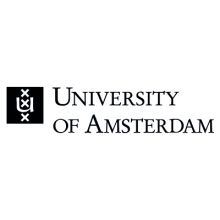The Netherlands has signed an extensive open access publishing agreement with Elsevier.
Under the deal announced on 19 May, some 95 per cent of Dutch articles can be made immediately open access – with Elsevier agreeing to provide open access options for all of its remaining titles.
The agreement, which runs until 31 December 2024, represents Elsevier’s most ambitious commitment to open access publishing to date.
The world’s biggest academic publisher, which has more than 2,500 journals including Cell and The Lancet, has previously faced criticism for its slow progress towards open access – a factor which led Germany, Norway, Hungary and the University of California system to ditch the Amsterdam-based publisher.
National consortia in these European countries have since signed open access deals with Elsevier, though the new agreement with the Netherlands is thought to go further in making research more accessible.
As part of the deal, which has been signed by the Association of Universities in the Netherlands, the Netherlands Federation of University Medical Centres and the Dutch Research Council, Elsevier will also work with its Dutch partners to develop new services to promote open science.
These include pilots project on strengthening the Netherlands’ national research portal, how institutions can make research data more accessible and how original research data can be shared more widely.
Kumsal Bayazit, chief executive officer at Elsevier, described the agreement as “the first of its kind globally” and a “testament to the forward-thinking nature of the Dutch research community.”
“We are delighted to partner with the Dutch community in advancing science and health outcomes through more open, reproducible and collaborative scholarly communication and knowledge systems.”
Tim van der Hagen, president of Delft University of Technology and chief negotiator for the Dutch consortium, said the deal was a “breakthrough in our ambition for 100 per cent open access in the Netherlands" and a "prelude to a public knowledge base for information about scientific output.”
The deal follows the announcement in December 2019 that the Dutch research institutions and Elsevier had signed a framework agreement, which led to the joint creation of the open science agreement.
In parallel, the Dutch institutions established an independent task force on responsible management of research information and data to determine the conditions and rules under which metadata of public research output can be re-used and enriched by all public and private organisations.
The recommendations of the task force on collaboration, including rules on who owns data, access to data and metadata and vendor neutrality, have informed the new deal, Elsevier said.
Register to continue
Why register?
- Registration is free and only takes a moment
- Once registered, you can read 3 articles a month
- Sign up for our newsletter
Subscribe
Or subscribe for unlimited access to:
- Unlimited access to news, views, insights & reviews
- Digital editions
- Digital access to THE’s university and college rankings analysis
Already registered or a current subscriber?










